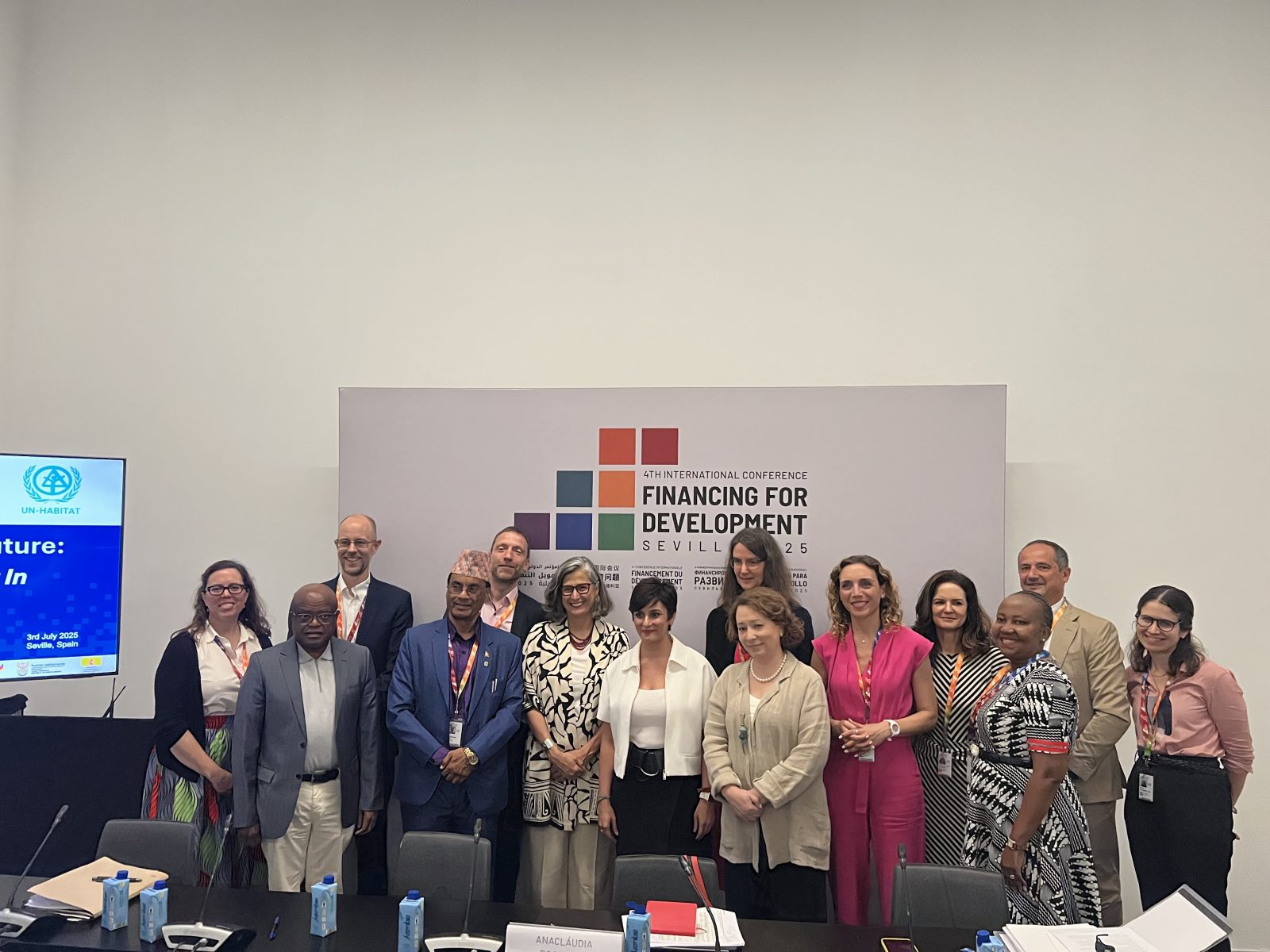Much has changed in the 10 years since the last financing for development conference in Addis Ababa, Ethiopia. Lower- and middle-income countries are facing severe fiscal pressures, with many countries spending more on debt servicing than on health or education. Official development assistance (ODA) budgets are being slashed, and one of the biggest players in international aid – USAID – has virtually ceased to exist.
Multilateralism in Action
Faced with these challenges, national and international commitment to strengthening development financing is needed – now more than ever. From June 30 to July 3, over 15,000 individuals gathered in Sevilla, Spain, for the Fourth International Conference on Financing for Development (FfD4) to address this daunting challenge and chart a path forward.
The International Centre for Tax and Development (ICTD) and the Local Government Revenue Initiative (LoGRI) were among the organizations playing a lead role in side events around the FFD meeting, advancing key ideas to strengthen financing for development. The ICTD and LoGRI have been engaged in the FfD4 process for over a year, advancing specific recommendations on tax through preparatory sessions and by briefing negotiators.
LoGRI’s Chair, Wilson Prichard, spoke at a closed-door roundtable on financing the localization of the SDGs, organized by the Local2030 Coalition, and at a UN-Habitat side event on scaling financing in cities for sustainable urban development. Through these sessions, he argued that property taxes should be at the center of the domestic revenue mobilization agenda for cities and local governments, as they not only offer revenue potential but can contribute to enhancing equity, local state-building and the social contract.
After a year of negotiation, member states endorsed the final outcome document, known as the Compromiso de Sevilla (the Seville Compromise), and launched over 130 initiatives under the Sevilla Platform for Action (SPA) to mobilize commitments made in the agreement.
Property Taxes: Overlooked, But Essential
In many ways, the Compromiso and SPA were a success. Domestic revenue mobilization (DRM) was highlighted as a key action area, with development partners pledging to double their support for DRM in developing countries by 2030. Signees agreed to promote progressive tax systems, strengthen subnational finance, and promote the diversification of revenue sources. Recommendations from the ICTD are also reflected in the language of the clauses on the informal sector, gender biases, tax expenditures, and other related topics.
The Compromiso also went further than previous declarations in recognizing the importance of sub-national revenue mobilization, in order to meet the pressing fiscal needs of cities and sub-national governments and support local statebuilding. It did not, however, explicitly recognize property taxation as a key component of sustainable subnational financing despite advocacy by various country delegations to do so.
As we enter what our colleagues at the ICTD have coined the “tax era of development”, making real progress on the Sustainable Development Goals (SDGs) will largely depend on countries’ ability to raise domestic revenues. Property taxes are the most underexploited major tax across lower- and middle-income countries, and the foundation of subnational financing in most low-income countries. The omission of property taxes in the Compromiso is a missed opportunity to bring attention – and action – to a potentially transformative revenue source.
In most sub-Saharan African countries, property taxes make up less than 0.2% of their GDP, whereas higher-income countries collect upwards of seven times this amount as a percentage of their GDP. While property taxes are thus severely underperforming, that also represents an opportunity: even modest improvements can unlock much-needed revenue for cash-strapped governments.
Property taxes are a particularly attractive revenue source for lower-income countries as they can be highly progressive, stable and economically efficient – if properly implemented. By providing municipal governments with a predictable, long-term funding source, expanded property taxation can help boost local government autonomy and self-reliance. Governments can then reinvest these revenues into the community, improving public service delivery and infrastructure. Modernizing their property tax systems can also provide governments with the fiscal capacity and administrative foundation required to access other revenue sources, such as public-private partnerships and climate finance.
Growing Demand for Reform
Guided by an emphasis on capacity building and locally-led reform, LoGRI has been partnering with local governments throughout sub-Saharan Africa and South Asia to help strengthen their property tax systems by providing strategic advisory services, implementation support, and technical resources. This approach has yielded compelling results – for example, a LoGRI-supported reform initiative in Freetown, Sierra Leone, tripled revenue collection in its first year, and the LoGRI-supported introduction of a new IT system, mapping and valuation approach has improved property tax administration in Kananga, DRC. These reform models have also informed diagnostic assessments and pilot projects in more than 10 other countries.
These case studies reflect a growing appetite for property tax reform, and the extent to which new knowledge, experience and technologies have unlocked new reform possibilities. There is an enormous opportunity to continue scaling those lessons to unlock new funding sources for subnational governments and spark broader governance improvements.
After Sevilla
As the dust settles in Sevilla, one thing is clear: finding new resources to support local development is more important than ever. While property taxes are not the only revenue-raising tool available to local governments, they can help bridge the $4 trillion annual financing gap, while supporting broader state-building objectives. Unlocking the potential of property taxes could be one way for cities to not only survive – but thrive in this new tax era of development.




